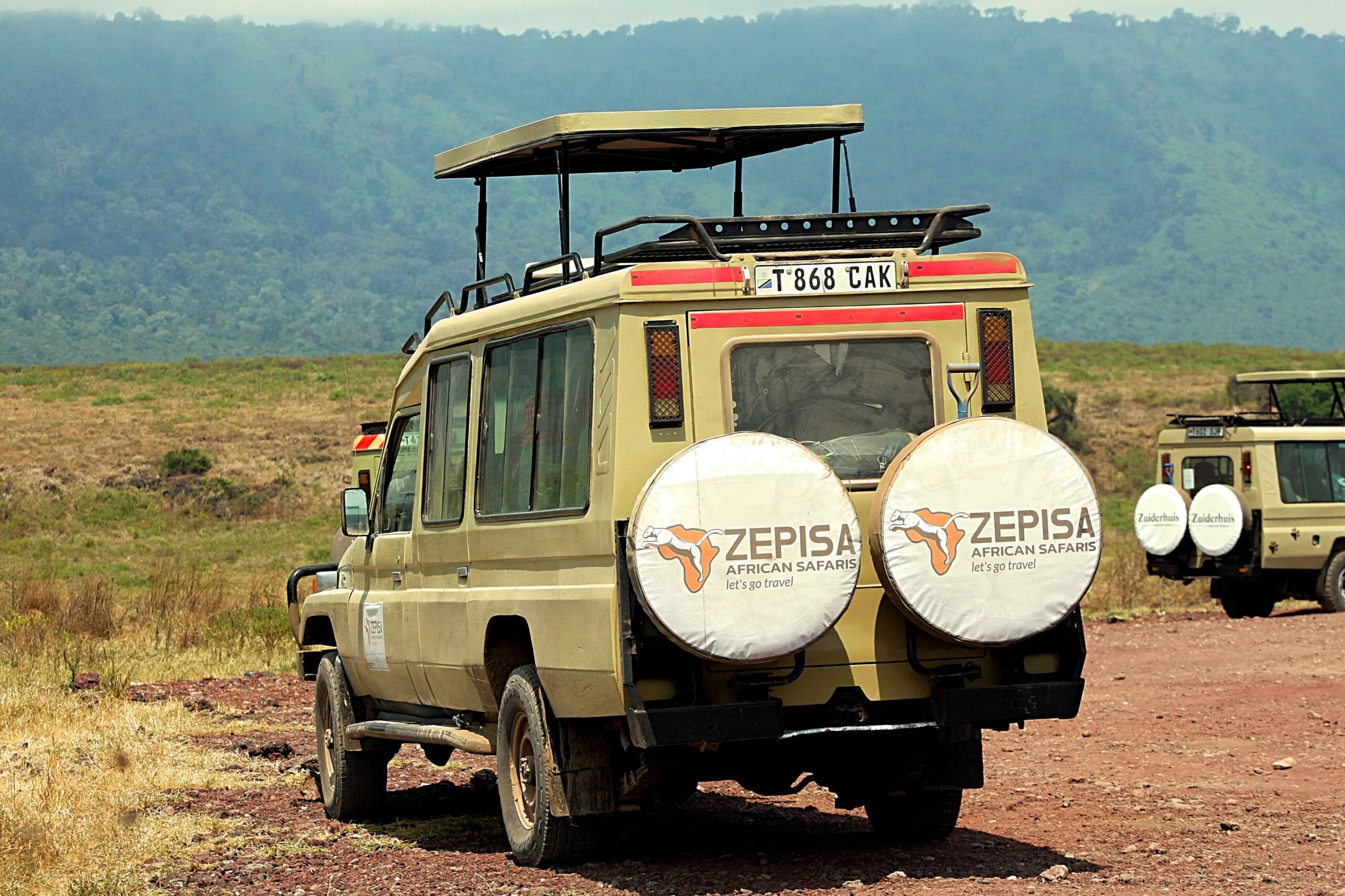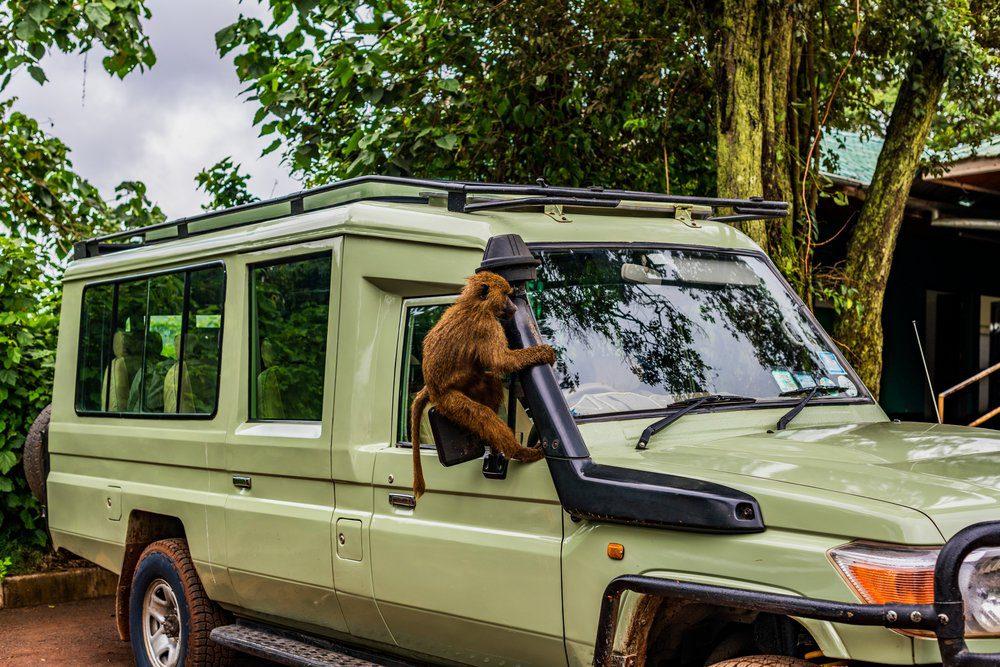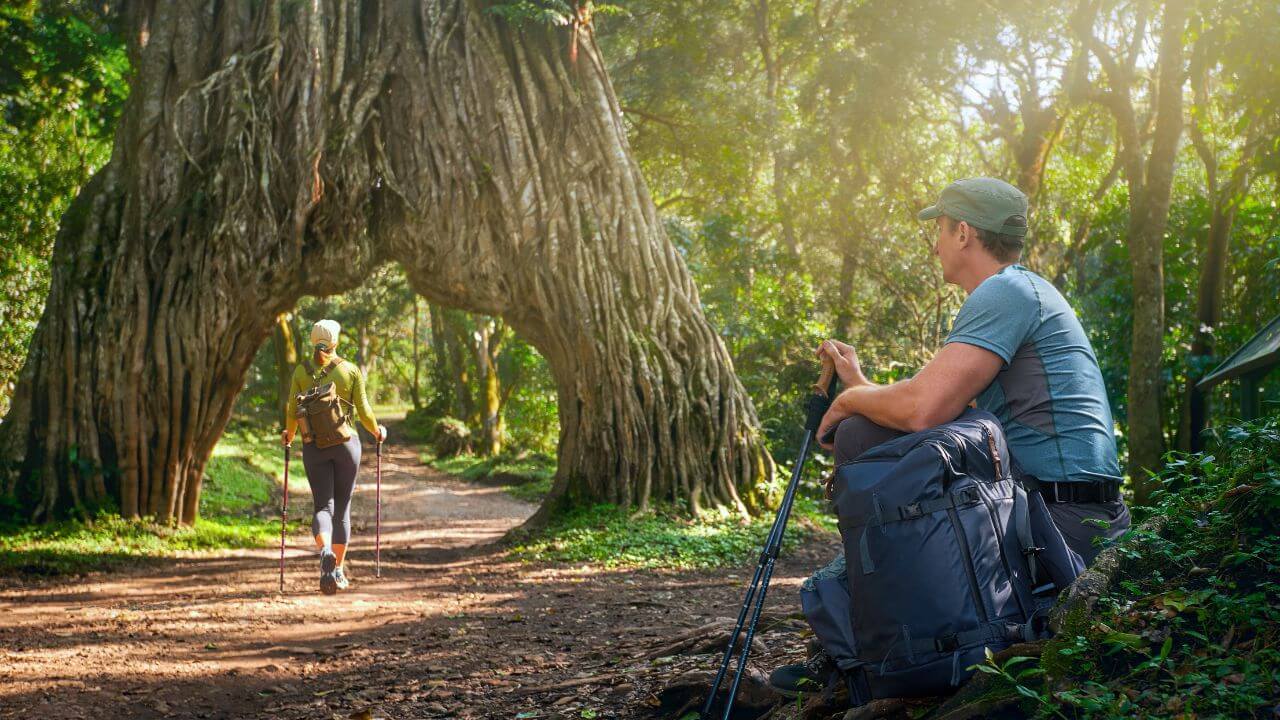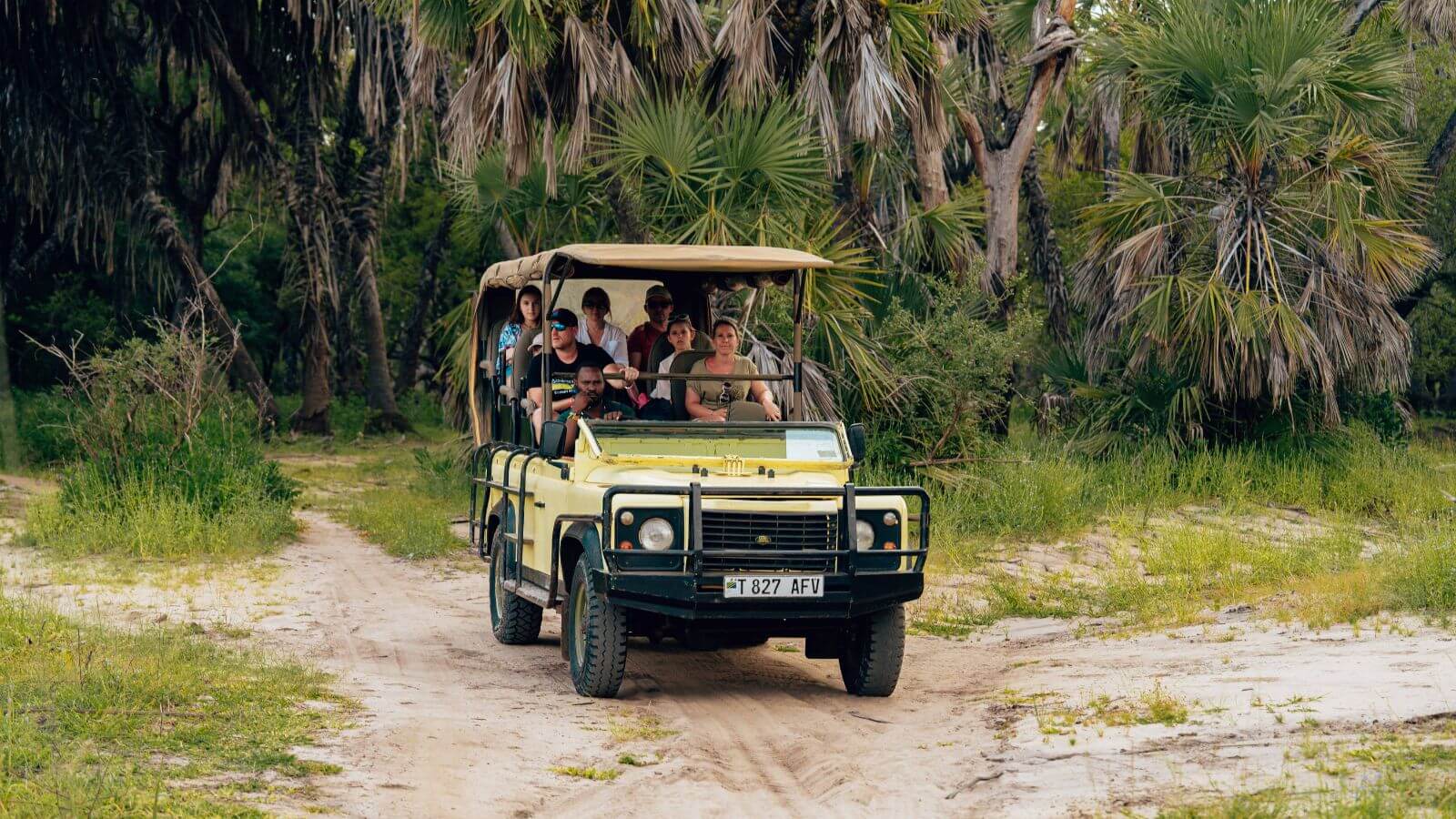How to Book a Safari in Tanzania: The Ultimate Guide
How to Book a Safari in Tanzania
If you’re planning a trip to Tanzania and want to experience the incredible wildlife and natural beauty the country has to offer, booking a safari should be at the top of your list. Tanzania is home to several renowned national parks and reserves, including the Tarangire , Serengeti , Ruaha and the Nyerere National park. With a wide range of options available, here’s how you can book a safari and make the most of your Tanzania adventure.
Choose the Right Tour Operator
To ensure a seamless safari experience, start by selecting a reliable and experienced tour operator. Look for companies that specialize in Tanzania safaris and have positive customer reviews. Experienced tour operators will not only handle the logistics of your trip but also provide knowledgeable guides who can enhance your safari experience. Let’s help you Plan your Tanzania Safari. Read our tripadvisor reviews


Decide on the Type of Safari
Tanzania offers various types of safaris to suit different preferences. If you prefer to stay in luxurious accommodations, opt for a lodge safari where you’ll stay in high-end lodges and enjoy all the amenities. For a more adventurous experience, consider a budget camping safari where you’ll sleep in tents under the stars. Walking safaris are also becoming increasingly popular for those who want to explore the wilderness on foot.
Park or Reserve?
Choosing between a national park and a private reserve is crucial. National parks are managed by the government and tend to be larger, offering a diverse range of terrains. They allow self-driving and have strict rules, like access only between sunrise and sunset. However, they might limit activities such as walking safaris.
Private reserves, while typically more expensive, offer exclusivity. They’re not open to day-trippers and usually have fewer vehicles around animal sightings, enhancing the wildlife experience. These reserves have flexible rules, allowing for night drives, bush walks, and off-road adventures. This makes them ideal for those seeking a personalized safari experience.
Camping Safari or Lodge?
The choice between camping and staying in a lodge depends on your desired experience. Camps range from basic tents to luxury setups with canvas en-suites and private plunge pools. Many prefer camps for their authentic feel, where the sounds of the wild surround you at night. Mobile camps in the Serengeti even move with the wildebeest migration, providing an immersive experience.
For those who value comfort and amenities, lodges offer solid walls and additional luxuries like gyms and spas. Whether opting for a cozy lodge or a luxurious one, you’ll find options catering to various preferences and
Bringing Your Family Along
Planning a family safari requires some extra considerations. While a safari can be a fantastic learning experience for children, it’s important to note that it’s not always best suited for babies or toddlers. Before booking, check with your lodge or camp about any age limits they may have or if they require you to book a private vehicle.
Family-friendly camps often offer babysitting services or specific activities tailored to children, ensuring that young ones are entertained and safe. However, keep in mind that certain activities, such as bush walking, are typically restricted to those over 16 years of age.
Tailoring the Safari Experience
By understanding the options available and the specific needs of your family, you can tailor the safari experience to ensure that everyone, from the youngest to the oldest, has a memorable adventure. Whether seeking luxury or adventure, Tanzania’s diverse safari offerings and family accommodations can cater to your personal and familial preferences.
Plan Your Itinerary
Tanzania is vast, and each park or reserve offers a unique safari experience. Make a list of the places you’d like to visit, such as the Serengeti National Park, Tarangire National Park, or Selous Game Reserve. Consider the best time to visit each destination, as wildlife sightings and weather conditions vary throughout the year. Remember to leave some time for a beach holiday in Zanzibar or the mainland coast to relax after your safari adventure.
Determine the Safari lenght
The duration of your safari will depend on your budget, availability, and personal preference. While a shorter safari of three to four days can still offer a memorable experience, a longer safari of seven to ten days allows you to explore multiple parks and increase your chances of spotting a wider variety of wildlife.

Consider the Dry Season
The dry season, which runs from June to October, is often considered the best time to visit Tanzania for a safari. During this period, water sources become scarce, and animals congregate around rivers and watering holes, making it easier to spot a wide range of wild animals. However, even during the wet season, known as the green season, Tanzania’s wildlife is still abundant, and the landscapes transform into lush and vibrant colors.
Get Information on Wildlife Viewing and Game Drives
Game drives are the highlight of any safari experience. Ensure your tour operator provides ample opportunities for game drives, both during the day and at night. Experienced guides will help you spot and identify different animal species and share interesting facts about their behavior and habitat.
When it comes to the vehicles used for these exciting excursions, you’ll find a mix of closed 4×4 vehicles and open-sided Land Cruisers or Land Rovers. Closed vehicles, often equipped with pop-tops, are common for journeys on roads outside national parks, allowing you to stand up for a better view. In contrast, higher-end camps usually offer open-sided vehicles that remain within the parks, providing an unobstructed safari experience.
As for the guides, most are full-time safari experts, though it’s important to note that Tanzania doesn’t have a standardized safari guide qualification. Some top-tier companies offer their own rigorous training programs. Regardless, you can expect your guide to be well-versed in the area’s routes, wildlife, and geography. Don’t hesitate to ask questions—it’s a great way to engage with your guide and tailor the experience to your interests.
Book in Advance
Tanzania safaris can fill up quickly, especially during the peak season. To secure your preferred dates and accommodations, it’s advisable to book your safari well in advance. This also allows you ample time to prepare and plan for your trip, including obtaining any necessary vaccinations and arranging travel insurance.
Pack Accordingly
When going on a safari, pack comfortable and lightweight clothing, including long-sleeved shirts and pants to protect yourself from the sun and insects. Don’t forget essentials like a hat, sunscreen, insect repellent, and a good pair of binoculars to enhance your wildlife spotting experience. It’s also important to pack appropriate footwear, such as sturdy walking shoes or boots. Read more What to park for Tanzania Safari.
Keep your packing minimal, particularly if you’re traveling on light aircraft flights with strict weight limits (usually around 15kg per person in a soft-sided bag). The midday sun can be intense, but early morning game drives might be quite chilly, so layering is key. Earth-toned colors are preferred to help blend into the environment without startling wildlife.
- Wide-brimmed hat or cap: Essential for keeping the sun off your face and head during long hours outdoors.
- Light, long sleeve shirts: Ideal for warmth during cool mornings and protection against the sun and mosquitos in the afternoon.
- Walking shoes: Invest in a sturdy pair that can handle bush walks, ensuring you break them in beforehand.
- Rain jacket: A must-have, especially if traveling during the rainy season.
- Binoculars: While guides often have a pair, having your own can enhance your experience, particularly for bird watching.
Additional Essentials
- Sunglasses for eye protection
- Sunscreen and toiletries, though many camps provide basics
- Insect repellent to ward off mosquitos
- Camera and extra memory cards for capturing special moments
- Electrical converters and chargers for your devices
- Flashlight or head torch for navigating campsites at night
- Painkillers and malaria medication for health precautions
- Cash: US bills (newer than 2006) or Euros, or withdraw local currency from airport ATMs
Clothing Suggestions
- Fleece layer or down jacket for cold mornings and evenings
- Long trousers in earth tones for blending in with the surroundings
- T-shirts and tank tops for warmer afternoons
- Casual evening wear for dinners at the lodge
- Sandals for comfortable lounging
By packing thoughtfully, you’ll ensure a comfortable and enjoyable safari experience, ready to embrace every moment of your Tanzanian adventure.Read more What to park for Tanzania Safari

Explore Beyond the Classics
While the Serengeti and Kilimanjaro may be the most famous attractions in Tanzania, there are many hidden gems waiting to be discovered. Consider adding lesser-known parks like Ruaha, Katavi, Gombe, Mahale, Nyerere, or Lake Manyara National Park to your itinerary for a more intimate safari experience.
Discover Tanzania’s Rich Culture
- Visit Local Villages: Immerse yourself in the vibrant cultures of the Maasai, Chaga, and Hadzabe tribes. Participate in traditional dances and learn about their customs and way of life.
- Explore Historical Sites: Wander through the ancient ruins of Kilwa Kisiwani or explore the colonial architecture of Stone Town in Zanzibar.
Embrace the Coastline
- Relax on Zanzibar’s Beaches: Enjoy the pristine sands and turquoise waters of Nungwi or Kendwa. Dive into the rich marine life with snorkeling and diving adventures.
- Water Sports in Pemba: Try your hand at kite surfing or deep-sea fishing in the less crowded waters of Pemba Island.
Adventure Beyond the Wild
- Hiking Expeditions: Trek through the Usambara or Udzungwa Mountains for stunning vistas and unique flora and fauna.
- Lake Activities: Spend a day at Lake Victoria or Lake Tanganyika, where you can go kayaking, fishing, or simply enjoy the serene environment.
By diversifying your itinerary, you can truly experience all that Tanzania has to offer beyond its famous safari routes. Whether you’re seeking cultural immersion, coastal relaxation, or thrilling adventures, Tanzania has something extraordinary for everyone.
Discover Tanzania’s Rich Culture
- Visit Local Villages: Immerse yourself in the vibrant cultures of the Maasai, Chaga, and Hadzabe tribes. Participate in traditional dances and learn about their customs and way of life.
- Explore Historical Sites: Wander through the ancient ruins of Kilwa Kisiwani or explore the colonial architecture of Stone Town in Zanzibar.
Embrace the Coastline
- Relax on Zanzibar’s Beaches: Enjoy the pristine sands and turquoise waters of Nungwi or Kendwa. Dive into the rich marine life with snorkeling and diving adventures.
- Water Sports in Pemba: Try your hand at kite surfing or deep-sea fishing in the less crowded waters of Pemba Island.
Adventure Beyond the Wild
- Hiking Expeditions: Trek through the Usambara or Udzungwa Mountains for stunning vistas and unique flora and fauna.
- Lake Activities: Spend a day at Lake Victoria or Lake Tanganyika, where you can go kayaking, fishing, or simply enjoy the serene environment.
By diversifying your itinerary, you can truly experience all that Tanzania has to offer beyond its famous safari routes. Whether you’re seeking cultural immersion, coastal relaxation, or thrilling adventures, Tanzania has something extraordinary for everyone.
Enjoy the Safari Experience
Finally, once you’ve booked your safari, it’s time to sit back, relax, and immerse yourself in the awe-inspiring beauty of Tanzania. Listen to the sounds of nature, witness breathtaking wildlife sightings, and make memories that will last a lifetime. A Tanzania safari offers an unrivaled adventure, bringing you closer to nature and the wonders of the African wilderness. Read more Tanzania Travel Guide
Frequently Asked Questions
Design your trip

